- Andrew College is a small, residential, two-year college related to The United Methodist Church. Its mission is to provide an academically challenging liberal arts curriculum within a nurturing community.
School Highlights
Andrew College serves 299 students (67% of students are full-time).
The college's student:teacher ratio of 4:1 is lower than the state community college average of 18:1.
Minority enrollment is 63% of the student body (majority Black), which is more than the state average of 61%.
Quick Stats (2025)
- Enrollment: 299 students
- Private-state tuition: $14,226
- Acceptance Rate: 51%
- Student:teacher ratio: 4:1
- Minority enrollment: 63%
- Source: Integrated Postsecondary Education Data System (IPEDS)
Top Rankings
Andrew College ranks among the top 20% of public schools in Georgia for:
Category
Attribute
Selectivity
Diversity
School Resources
School Overview
The teacher population of 75 teachers has stayed relatively flat over five years.
Andrew College
(GA) Community College Avg.
Carnegie Classification
Baccalaureate/Associate's Colleges: Associate's Dominant
Associates--Public Rural-serving Medium
Institution Level
Four or more years
At least 2 but less than 4 years
Institution Control
Private not-for-profit
Public
Total Faculty
75 staff
209 staff
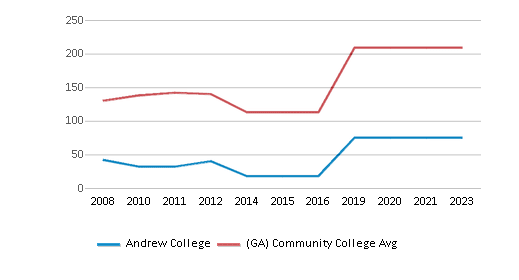
School Calendar
Student Body
The student population of Andrew College has stayed relatively flat over five years.
The student:teacher ratio of 4:1 has stayed the same over five years.
The Andrew College diversity score of 0.71 is equal to the state average of 0.71. The school's diversity has grown by 23% over five years.
Total Enrollment
299 students
2,242 students
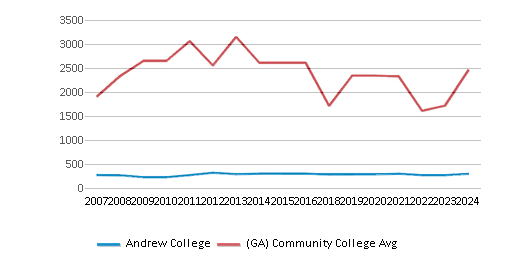
Student : Teacher Ratio
4:1
18:1
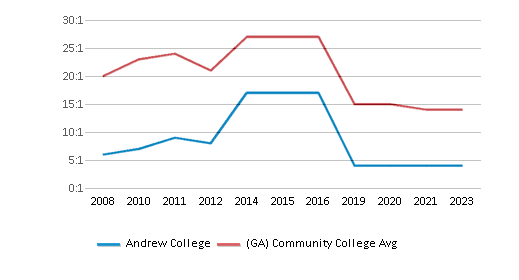
# Full-Time Students
199 students
882 students
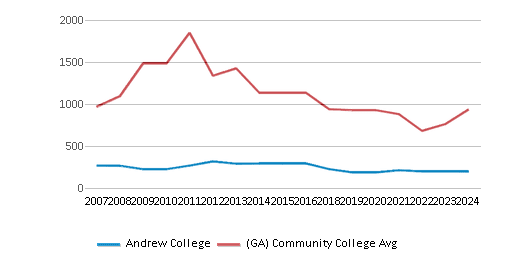
# Part-Time Students
100 students
1,722 students
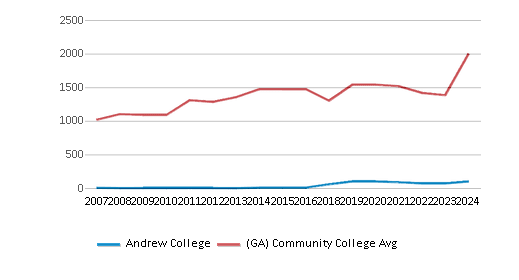
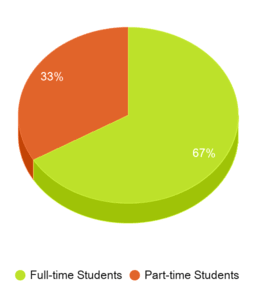
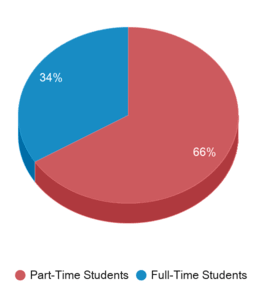
# Enrollment Undergraduate
299 students
299 students
# Full-Time Undergraduate Students
199 students
929 students
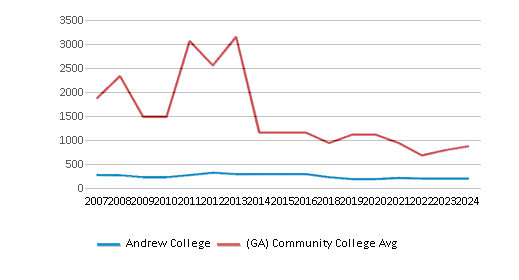
# Full-Time Graduate Students
n/a
87 students
# Part-Time Undergraduate Students
100 students
1,891 students
# Part-Time Graduate Students
n/a
53 students
Total Dormitory Capacity
330 students
654 students
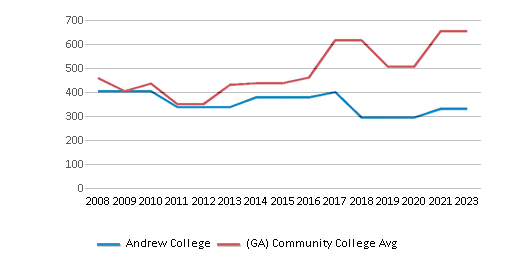
% Asian
n/a
4%
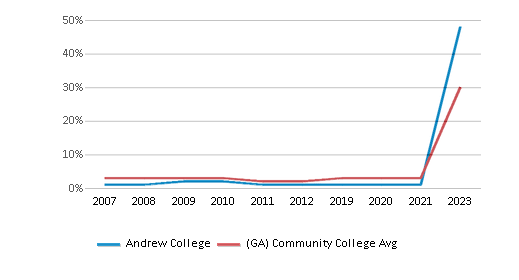
% Hispanic
7%
10%
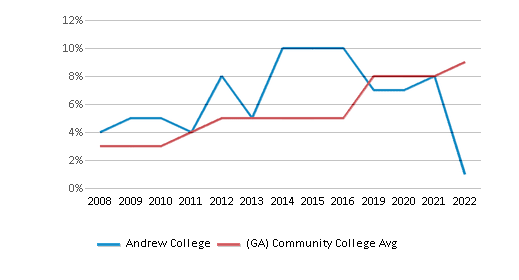
% Black
36%
35%
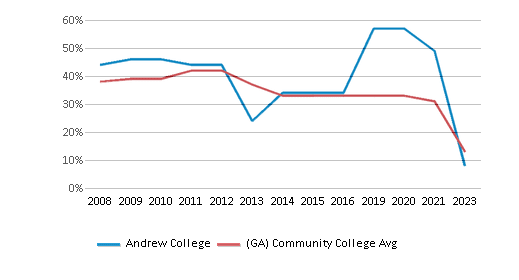
% White
37%
39%
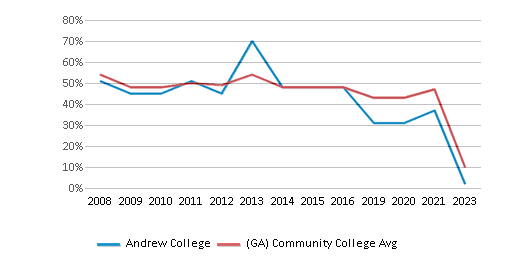
% Hawaiian
11%
1%
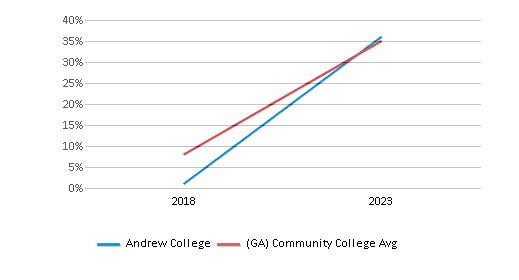
% Two or more races
4%
3%
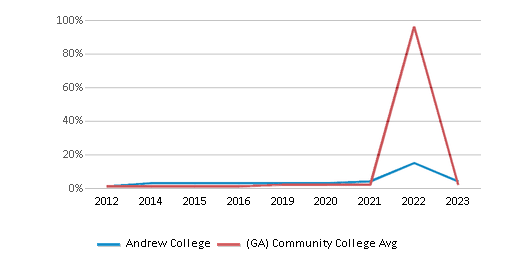
% Non Resident races
2%
1%
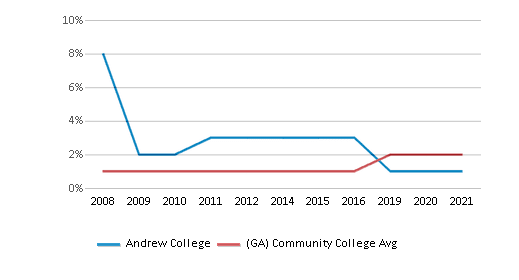
% Unknown races
3%
7%
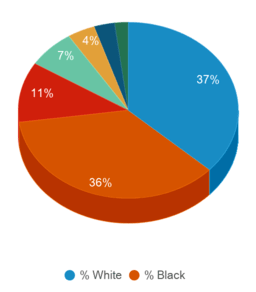
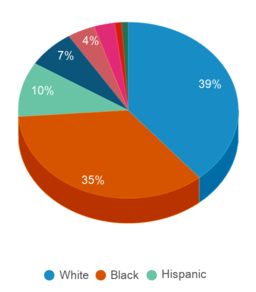
Diversity Score
0.71
0.71
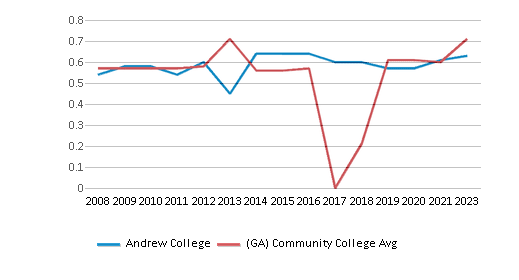
College Completion Rate (Students who graduate in less than 4 years)
17%
29%
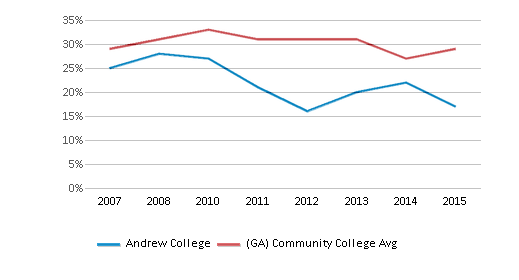
College Completion Rate (Students who graduate in 4 years or more than 4 years)
0.2368%
0.2368%
Average Graduate Earnings (10 Years)
$29,000
$29,500
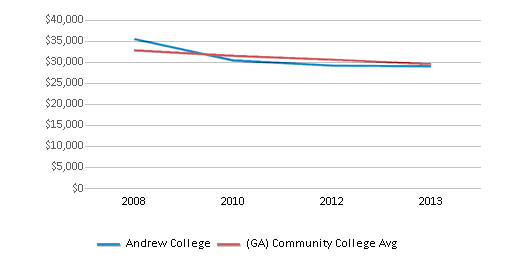
Tuition and Acceptance Rate
The private state tuition of $14,226 is less than the state average of $15,267. The private state tuition has declined by 25% over four years.
Private State Tuition Fees
$14,226
$15,267
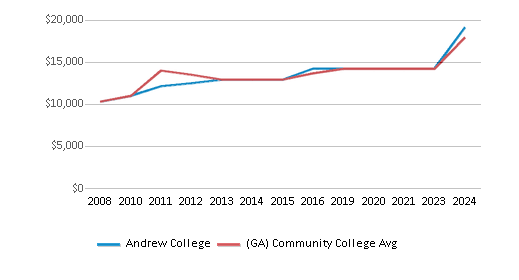
% Students Receiving Some Financial Aid
99%
93%
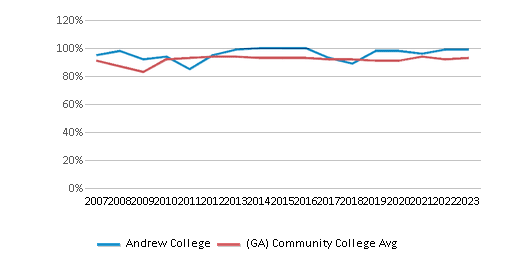
Median Debt for Graduates
$12,000
$12,139
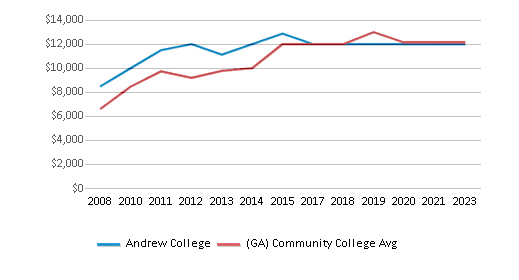
Median Debt for Dropouts
$5,500
$5,500

Acceptance Rate
51%
75%
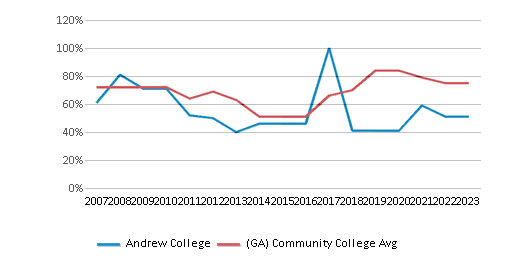
SAT Total Avg.
1,245
1,380
SAT Reading
420
465
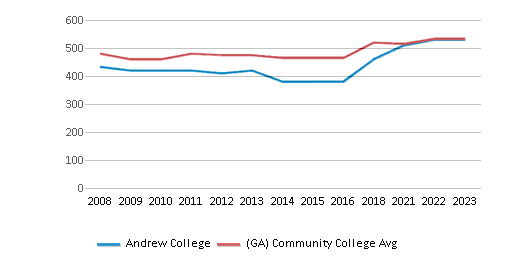
SAT Math
410
450
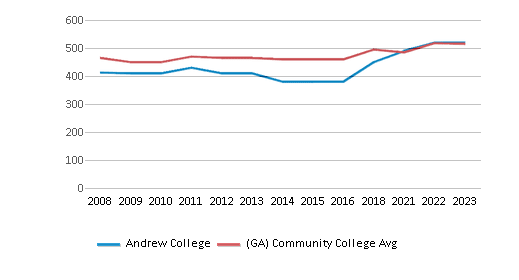
SAT Writing
415
465
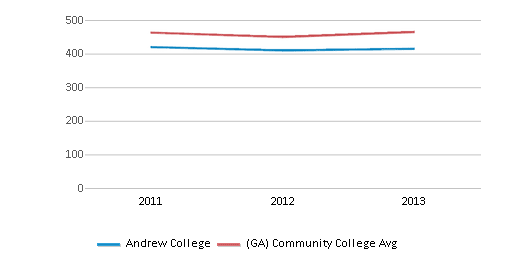
ACT Total Avg.
64
61
ACT Composite
18
18
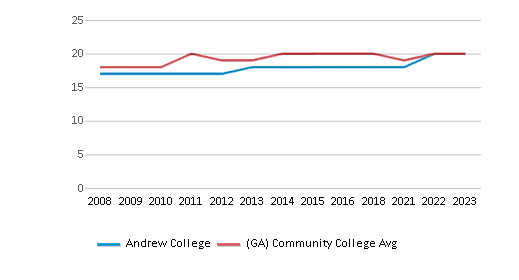
ACT English
16
18
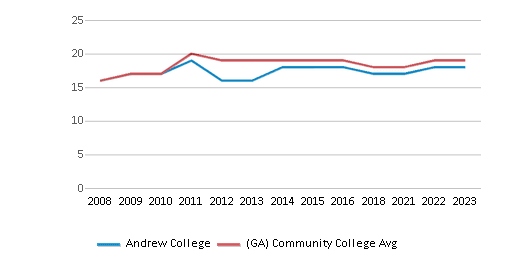
ACT Math
18
18
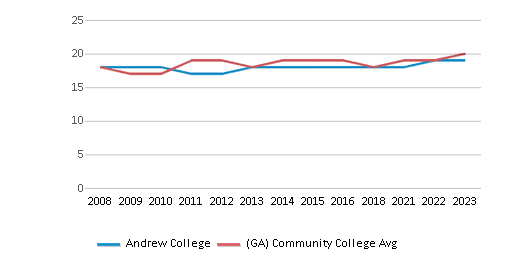
ACT Writing
12
7
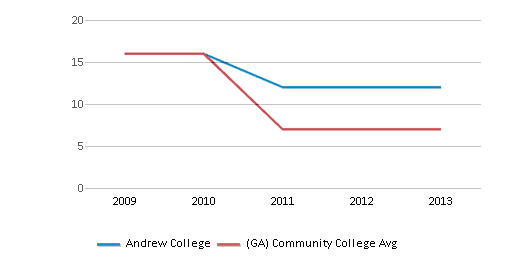
Source: 2024 (or latest year available) Integrated Postsecondary Education Data System (IPEDS)
School Notes
- The Charter of Andrew College, granted in 1854 by the Georgia Legislature, is the second oldest charter in the United States giving an educational institution the right to confer degrees upon women. Originally named Andrew Female College, Andrew operated as a women's four-year college for 63 years. In 1917 Andrew became a junior college and in 1956 the institution became co-educational. The Andrew campus is a melting pot of diversity. We have 15 buildings on approximately 40 acres where our dedicated faculty teaches nearly 400 students from 10 states and 10 different countries. Andrew is located in the beautiful rolling hills of Southwest Georgia in the friendly town of Cuthbert, only a short afternoon drive from the North Georgia mountains or the Gulf Coast beaches. As a private, residential, two-year college, Andrew provides students with a better beginning to their collegiate career. Andrew College offers life changing opportunities and experiences for students who want to make a real difference on campus during their critical freshman and sophomore years. Andrew students take a broad array of courses within the areas of math and science, social science, humanities, and fine arts, as we want our graduates to be well prepared for whatever path in life they may choose. If you come to Andrew, we will not train you for a job – we will teach you a lifelong passion for learning and the desire to succeed. We teach more than subject matter at Andrew; we teach the values of responsibility, acceptance and respect of all people, and dedicated service to others. Andrew College is accredited by the Commission on Colleges of the Southern Association of Colleges and Schools to award associate degrees. Andrew College is listed by the University Senate of The United Methodist Church.
Frequently Asked Questions
How much does Andrew College cost?
Andrew College's private state tuition is approximately $14,226.
What is the acceptance rate of Andrew College?
The acceptance rate of Andrew College is 51%, which is lower than the state average of 75%. Andrew College's acceptance rate is ranked among the top community colleges in Georgia with low acceptance rates.
What is Andrew College's ranking?
Andrew College ranks among the top 20% of community college in Georgia for: Lowest acceptance rates, Diversity in US community colleges and Percent of students receiving financial aid.
Recent Articles

Obtaining Your Bachelor's Degree at a Community College
Explore the evolving landscape of community colleges offering bachelor's degrees, addressing affordability, accessibility, and workforce needs.

A to Z of Community College Certificates and Courses
From business and healthcare to technology and skilled trades, the article showcases the breadth of options available to students seeking to enhance their knowledge, develop new skills, or pursue career advancement.

What is a Community College?
This comprehensive guide explains what a community college is, its history, and its role in higher education. It covers the types of programs offered, differences from four-year colleges, benefits of attending, and important considerations for prospective students, providing valuable insights for those exploring educational options.









